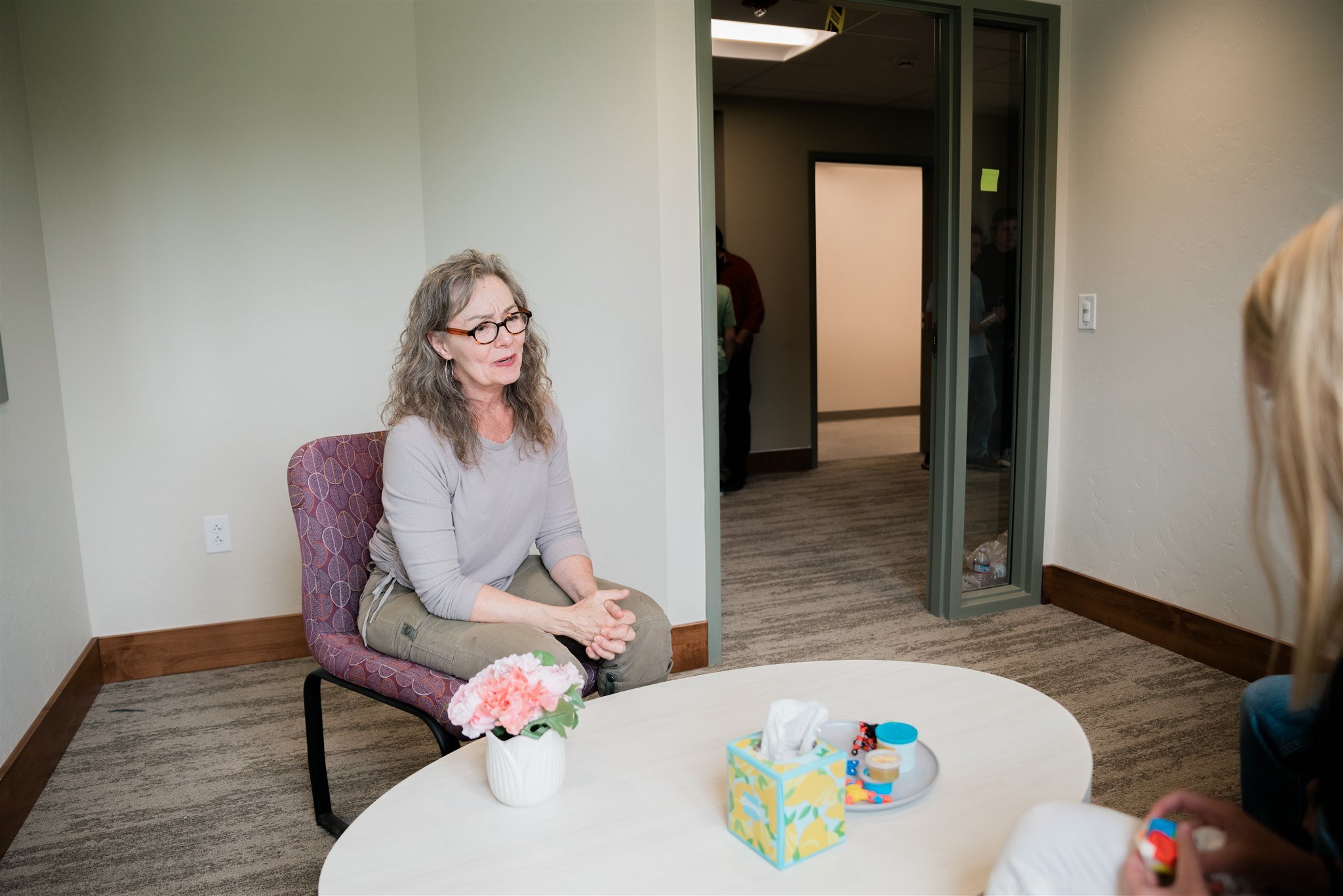Idaho Youth Ranch
Subscribe to our blog
Of the many dynamic challenges of working with youth, often the one that most therapists struggle with is having difficult conversations with parents. While conversations about mental health diagnoses, treatment plans, and progress updates can be difficult, therapists are often the bearers of traumatic discoveries like suicidal ideation, previously unknown sexual abuse, or sexual identity that affect the child and the parents. It can be difficult to navigate these conversations in a way that is both professional and empathetic, and that ensures the best possible outcome for the youth.
Here are a few tips for therapists on how to effectively have tough conversations with parents of youth in therapy:
- Prepare in advance: Before the conversation, take the time to review the youth’s treatment plan and progress, and gather any relevant information that will be helpful to share with the parents. Make sure to frame the conversation in terms of the youth’s therapeutic goals and, in the case of breaking particularly traumatic or difficult news, make sure you come prepared to listen nonjudgmentally to the reactions and concerns of the parent(s). When appropriate, make sure you have a clear idea of next steps following the revelation. This will help you feel more confident and in control during the conversation.
- Be open and honest: Parents of youth in therapy are often anxious and uncertain about their child’s well-being. Make sure that you are transparent about your approach and the goals for the youth. Giving parents a sense of being “part of the solution” will help them trust you and will pay dividends in credibility through the therapeutic process. By being open and honest with them about their child’s progress and treatment plan, you can build trust and reduce their anxiety.
- Use “I” statements: When discussing sensitive topics, it can be easy to inadvertently place blame or make accusations. To avoid this, use “I” statements when sharing information. For example, instead of saying “Your child is not making progress,” say “I am concerned about the youth’s lack of progress.”
- Listen actively: Parents of youth in therapy may have a lot of questions and concerns. By actively listening to them and responding to their questions and concerns, you can help to build trust and ensure that they feel heard and understood. Bear in mind cultural sensitivities and refrain from judgment. The parents came to you because they recognized their child needed support, which takes courage. Make sure to treat them with respect and patience as they navigate this process with their child.
- Encourage open communication: Encourage parents to share any concerns they may have and invite them to ask questions. Make sure they understand that communication is an ongoing process, and you are open to continue the conversation. It might be beneficial to build 10–15 minutes into occasional sessions to encourage communication with the parents and the youth so you can model and facilitate communication.
- Provide resources: In addition to providing information about the youth’s treatment plan, also offer resources for parents to learn more about mental health and support services. This can help to empower them to be active participants in their child’s treatment. Be mindful of any mental health challenges or previous trauma parents may have experienced. Providing additional resources for parents will not only help them understand their child’s journey, it may also help them begin their own.
- Be empathetic: Remember that parents of youth in therapy are often under a great deal of stress and may be struggling with their own emotional concerns. Many are afraid of being judged or could be feeling a sense of shame and failure. By being empathetic and understanding of their perspective, you can create a more positive and productive conversation.
- Be solution-focused: Even if the conversation involves difficult topics, try to focus on finding solutions that will help the youth to make progress in therapy. For example, if the client discloses a trauma the parents were unaware of, make sure to come prepared to listen and share strategies the parents can use to help their child feel supported at home. Frame the child’s experience to the parents in terms of how this trauma is impacting the youth. For example, if the youth is afraid they will lose their parent’s love, make sure they understand how important it is that they reinforce their child’s sense of love. If the youth is afraid that a traumatic experience will hurt their parent(s), make sure the parent(s) know strategies for reassuring the youth. This practical approach will give parents a sense of control and structure that will help them maintain their child’s therapeutic momentum at home while dealing with any secondary trauma.
- Watch your language: Use non-judgmental, laymen’s terminology so you don’t make parents feel isolated or feel you are condescending. When parents feel you are communicating with them and not talking over them, they will feel like part of the team and are more likely to engage in real conversations.
- Focus on strengths: Use a strength-based approach when talking to parents about what they’ve done well and how they can expand upon that when supporting their youth. Celebrate their progress and acknowledge their child’s ability and desire grow. Stick to the facts, and resist inserting your interpretation when possible. When you focus on what they need to be successful, parents are more likely to react positively and provide the support you and their youth need to be successful.
Having tough conversations with parents of youth in therapy can be challenging, but by following these tips, you can ensure that the conversation is productive and beneficial for both the youth and the parents. Remember that parents come to you with their own challenges, but found the courage to ask for help for their child. By leading with empathy and compassion, you can build trust with parents and guardians, which will ultimately help your client.




%2c%20equips%20individuals%20with%20skills%20to%20navigate%20relationships%20and%20social%20situations%20effectively.jpg)
Leave a Comment